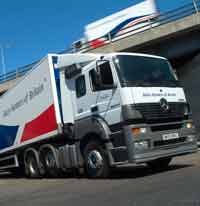Report into DFoB collapse blames liquid division

The failure of Dairy Farmers of Britain’s liquid division was a major factor in the co-op’s collapse, according to a report from managing receiver PricewaterhouseCoopers.
It said the liquids division was ultimately loss-making and proved to be unsaleable as a business either before or during receivership, despite extensive marketing, and was cited as the reason why a merger or joint venture deal was not possible.
The report steered clear of blaming any individuals for the co-op’s collapse, but did point to a number of other complex factors that played a part – many of which have been well aired since DFoB went into receivership three months ago.
In particular, PwC highlighted the massive cash shortfall (£51.5m) that resulted after considerable capital expenditure could not be recovered. Between 1 April 2004 and 31 March 2009 the Group’s net cash outflow before Members was £109.1m, which included over £95m in acquisition costs, including Associated Cooperative Creameries (£81.1m), Lincoln (£6.3m) and Bridgend (£7.5m).
DFoB’s trading, member retentions and working capital management were not sufficient to fund the high levels of capital expenditure, or cover the significant exceptional costs incurred in restructuring the business and, accordingly support the milk price it paid, even though that price was often at the lower end of the market.
The loss of the Co-operative contract, lower than anticipated sales of Tesco’s ‘localchoice’ brand milk, and trading problems at the Llandyrnog cheese plant all contributed to the poor trading, the report said.
PwC confirmed that no steps would be taken by the receivers and managers (or by the bank) to collect any monies that may be due from any members with guarantees.
The report said that while DFoB had stopped trading there was still a significant amount of money to be collected by the receivers and a conclusion of the receivership was unlikely before June 2010. At that time, a final report would be sent to creditors, members and ex-members.
The NFU described the report as an extremely sad story, but acknowledged that it brought a degree of closure and clarity to what had been an agonising period of uncertainty for DFoB members.
“I’m sure that many farmers won’t be surprised to learn that the underlying causes of DFB’s problems appear to include a flawed business plan, poor management and bad decision making, which gradually eroded the profitability and viability of the company,” NFU director general Richard Macdonald said.
“Most importantly, this must never be allowed to happen again and it is time now to consider the lessons learned.
He said there was a need for greater scrutiny on the finances of co-ops, which should be just as accountable as plcs. There was also an urgent need for more frequent financial appraisals of co-ops, including regular trading statements, financial updates and a full annual audit.
“I would like to acknowledge the good work that has been done by the receiver. While it is extremely disappointing that the receiver doesn’t expect that any monies owed to farmers will be paid out, the improved milk price and, in particular, the news that no steps will be taken by the receiver or the bank to call in member guarantees, are a huge relief.”
The Environment, Food and Rural Affairs Committee has also decided to examine the implications of DFoB’s collapse on dairy farmers and the industry and any information must be submitted by 31 August 2009.
What went wrong: |
|---|
|
